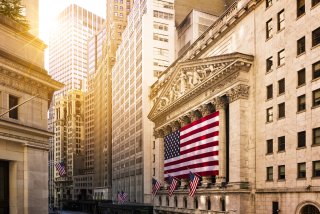America Must Exemplify Both Free Markets and a Free Economy
America is seriously derelict in its role as an exemplar of capitalism and free markets if our economy itself is not free, as evidenced by instances of politically-motivated de-banking.
The unprecedented de-banking of Nigel Farage, the prominent British populist, underscores the waning neutrality of our global financial system. Farage, the most prominent promoter of Brexit, found his long-standing bank accounts abruptly closed in late June without explanation.
In the United States, this trend has been ongoing for several years—most recently recurring with the de-banking of entire organizations by JPMorgan on the sole basis of being Christian groups. The National Committee for Religious Freedom and the Family Council were deemed “High Risk” and saw their accounts terminated, sparking an outcry that included letters of warning from nineteen attorneys general and fourteen state treasurers.
These incidents highlight the alarming erosion of financial institutions’ apolitical commitments. It’s a category mistake to think that this type of corporate censorship is simply “free market” behavior. America is seriously derelict in its role as an exemplar of capitalism and free markets if our economy itself is not free. We can’t make free markets a smoke screen for the erosion of freedoms.
Because erroneously-termed “free market” actions by big banks are targeting conservatives, the American left has now begun aligning itself with free-market ideology. “A private company can do what it wants!” is now a left-wing expression. Conversely, Republicans find themselves embroiled in a clash with big businesses as they grapple with a changing socio-political landscape. As highlighted in a recent Politico article, “Democrats champion free markets as Republicans target Wall Street,” these changing dynamics have found so-called “progressives” on the side of the corporate interests they claim to oppose.
While we must recognize the essential role of free markets in a flourishing economic framework, it’s imperative to take a more comprehensive approach—one that not only permits but actively fosters the businesses and other free associations that have society’s best interests at heart. We need more than a free market. We need a free economy.
Although the global economy is vastly more sophisticated and convenient than decades past, it has clearly deviated from the core values that enabled its growth in the first place. Democratic governments, once conceived as the protectors of individual liberties, have expanded into unwieldy behemoths, while culture has become homogenized and less tolerant of dissenting voices. Only in such a conformist world would free speech or holding a political perspective be grounds for expulsion from a job, a marketplace, or access to credit. We stand at a critical crossroads—we either renew an economy built on the twin pillars of liberty and virtue or we surrender every industry, company, and workplace to a totalizing ideology.
Free markets still play a significant role within this vision. Free markets are the engines of innovation, the conduits of competition, and the drivers of economic growth. Throughout history, they have consistently proven their capacity to raise living standards and provide avenues for entrepreneurial creativity to flourish. Yet, we must move beyond the realm of “negative” freedom—unfettered business activity—to recognize that we have neither free markets nor a free economy. The modern workplace is fraught with viewpoint discrimination and enforced ideology, with the fanatical few making decisions for the mainstream.
These trends in our political landscape call for a comprehensive approach, one that acknowledges that a free economy transcends mere market mechanics. Aside from simply freeing the market, we must also focus on the intentional creation of enterprises and institutions that align with our values, fostering an environment where we can be sure that not only the businesses themselves are legally free from government intervention, but that everyone who contributes to their economic output (both employees and customers) can also be free to think and create. This individual freedom is core to a free economy, and constitutes one of America’s most important examples on a global stage.
This is how we incentivize economic decisions that will build prosperity for families and communities. Companies that prize their employees and customers can transcend the notion that business success solely hinges on financial metrics, without also importing progressive ideologies to wipe out perennial values. The foundation of a free and courageous economy must extend beyond shareholder value, but by expanding individual freedom, not curtailing it.
Whether liberal or conservative, whether a worker, a customer, or a business owner, everyone who participates in the economy should commit to working fairly and openly for both profit and to further our values in society. Free markets will then become only one facet of a much broader tapestry woven by the hands of free individuals, whose potential knows no bounds when set free in a society that nurtures their aspirations and celebrates their success.
Matthew Mohlman is Executive Director of the Monument Legacy Donor Advised Fund, a charitable giving platform for mission-driven donors and non-profit organizations; President of Monument Ventures, a principled finance platform for investors and entrepreneurs; a Knight of Columbus council officer; and the incoming President of the Catholic Charities Indianapolis Agency Council.
Image: Shutterstock.

